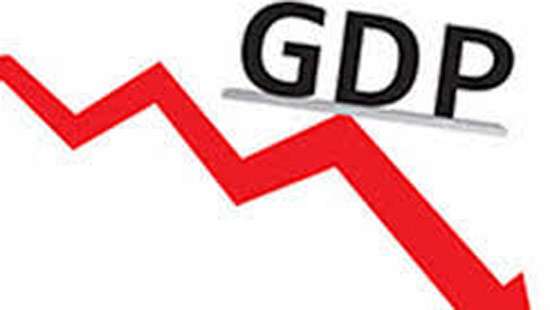Reply To:
Name - Reply Comment

Sri Lanka’s Gross Domestic Product (GDP) contracted the most in two years in the quarter ended June (2Q22), the first full quarter since the country plunged into a deep economic crisis followed by social and political upheaval, which disrupted most of the economic activities amid widespread shortages and soaring prices.
The GDP shrank an unsurprising 8.4 percent in the April-June period compared to the same period last year as the acute shortages in fuel and other commodities and prolonged power cuts, which began around February became more pronounced and brought the economy into a near standstill in June.
The last worst GDP reading came in the second quarter in 2020 when the economy shrank by 14.8 percent when the pandemic-related lockdowns choked the economy.
“Specially power disruption, fuel shortage, supply chain disruptions in importing required materials including cement, shortages in supply of fertilisers and chemicals, disruptions in goods and passenger transport and the lower demand made in non-essential services due to the high inflation have made destructive conditions on agriculture, industry and services activities during the period under review,” the Department of Census and Statistics said.
“The overall agriculture, industry and services activities declined by 8.4 percent, 10.0 percent and 2.2 percent respectively, in the second quarter of 2022,” it added.
With the sharp contraction in the second quarter, preceded by a modest 1.6 percent contraction in the first quarter, Sri Lanka has officially entered into a period of recession.
A recession is typically defined when an economy suffers two back-to-back quarters of negative growths.
As a result, in the first six months the Sri Lankan economy gave up 4.8 percent of its size.
However, analysts, taking stock of the developments that took place in the economy between June are cautiously optimistic that the worst could be over for Sri Lanka, though the revival of the economy will take considerable time.
In a key positive development, Sri Lankan authorities recently sealed a staff-level agreement with the International Monetary Fund (IMF) for a four-year US$ 2.9 billion Extended Fund Facility.
The government this week confirmed that the international financial and legal advisors appointed by them are engaging with the country’s three major bilateral creditors—China, India and Japan.
However, the country’s US$ 81 billion economy, which is slated to give up over 8.0 percent of its output by the end of this year is far from turning a corner and its fragile politics, and the public, which are fast running out of patience, could flip the economy back to square one.